Eric-Clifford Graf (PhD, Virginia, 1997) teaches and writes about the liberal tradition as authored by men like Alexander Hamilton, Frederick Douglass, and Jorge Luis Borges. His latest book is ANATOMY OF LIBERTY IN DON QUIJOTE DE LA MANCHA (Lexington, 2021). All of his work can be found here: ericcliffordgraf.academia.edu/research.

Many centrists and conservatives are leery of Michel Foucault’s enduring popularity in higher education. Some think he’s the very essence of a great postmodern conspiracy to take down Western Civilization. Perhaps. But even if he’s part of a bigger problem, we ought not dismiss the entirety of his work. Not all his books merit attention, […]
Read More
Lean over on the bookcase. If you really wanna get straight, Read Norman Mailer Or get a new tailor. – Lloyd Cole, “Are You Ready to Be Heartbroken?” Sometimes Norman Mailer looks to me like George Bush, Jr. after an all-night bender at Yale. That’s where the resemblance stops, I think. Mailer counts among the […]
Read More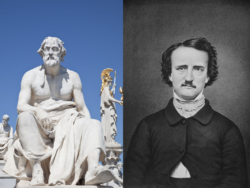
“Each side is coming face to face with its own conception of the devil!” – Norman Mailer, The Armies of the Night Arthur Rackham’s 1935 illustration of Edgar Allan Poe’s “A Descent into the Maelstrom” At some point while reading The Peloponnesian War (late fifth century BC) you begin to realize that Thucydides is up […]
Read More
Literature Is Critical Precisely Because Nobody Thinks So As he sailed into the horizon, Odysseus might have wondered what really happens when you become nobody. That was Dante’s take on him, at least (see Inferno 26). The Ithacan overreached and his individualism erased him from the world. The Pillars of Hercules, which marked the edge […]
Read More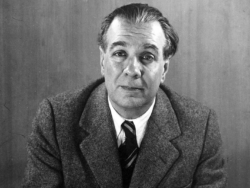
“Die Hydra der Diktator” (1946) is a famous drawing by Jorge Luis Borges (1899–1986) finished about a decade before he went blind in 1955. Today Borges rests firmly in the pantheon of classical liberalism. His stories convey a complex, yet also mysteriously ordered vision of the cosmos. His smooth, organic style makes him particularly compatible […]
Read More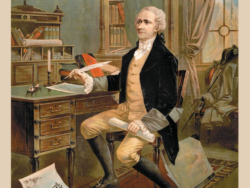
Political Hydras, Part 1 (for Javier Fernández-Lasquetty Blanc) “Such is its nature that, as fast as one doubt is cut away, innumerable others spring up like Hydra’s heads, nor could we set any limit to their renewal did we not apply the mind’s living fire to suppress them.” —Boethius, The Consolation of Philosophy (4.6) Among […]
Read More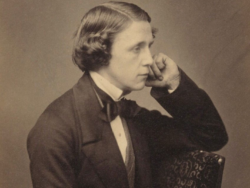
“… everything is queer today.” – Alice P. Oxy. LII 3679, 3rd century AD, with fragments of Plato’s Republic Near the end of Plato’s Republic, a gap opens in the form of the famous Allegory of the Cave at the beginning of Book 7. It’s among the most metaphorical gestures in all of Plato’s work. As such […]
Read More
Neapolitan Overtime What is a constitution? In the very broadest sense, whether we refer to Moses’s ten commandments (1450 BC), the Magna Carta (1215), or the Articles of Confederation (1777–89), a constitution is a document that defines and reflects the existence of a people or a nation. A constitution doesn’t have to be a specific […]
Read More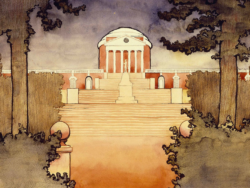
There are professors, and then there are professors. Donald Leslie Shaw (1930–2017) was a titan in the field of Hispanic literature. He wrote two definitive books on the principal literary movements of modern Spain and Latin America: The Generation of 1898 in Spain (1975) and Nueva narrativa Hispanoamericana (1981). He also wrote what remains the best […]
Read More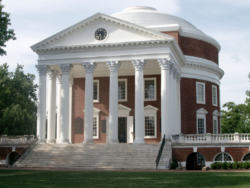
Radical Individualism and the Renaissance (for Cayetana Álvarez de Toledo) “By the side of the farm must early spring up a wide circle of industries …” – John Stuart Mill, Principles of Political Economy (6.6) The egalitarianism that has dominated American education since the 1960s needs rethinking in order to remain the engine of our […]
Read More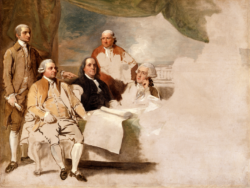
The Opportunity Cost of Culture “Alas poor Yorick! I knew him, Horatio.” – Shakespeare, Hamlet 5.2 Most readers feel the tug of a natural law in James Madison’s Federalist 51 (1788). This effect owes to the essay’s analogy between individuals and factions. Like Locke and Defoe, Madison reduces his case against majority rule to its […]
Read More
Ignorance in America regarding her basic economic and political principles—the vitality of free markets and limited government, for example—is ironic given their proven ability to raise standards of living and defend human rights. This disparity suggests that our hyper-successful democratic society is cursed by its own peculiar knowledge problem. On the one hand, as a […]
Read More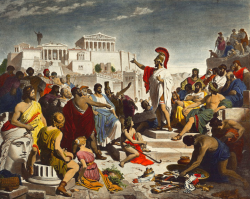
It’s important to grasp Thucydides’s realism in The War of the Peloponnesians and the Athenians (late 5th century BC). He shows the ways of the world, aspects of events nobody can control, and real motives behind expressed ones. Sometimes, however, Thucydides spies trends that can be managed or which signal an advantage to one side. […]
Read More
An Academic Approach to an American Asset “The ink is black; the page is white.” – Three Dog Night (1972) Shelby Steele’s White Guilt: How Blacks and Whites Together Destroyed the Promise of the Civil Rights Era (2006) ranks among the best approaches to what has gone wrong in the U.S. in recent years. I […]
Read More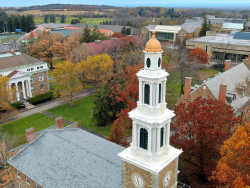
Cosmopolitan Leftism in Higher Education Hamilton College lies in the gorgeous Finger Lakes region of upstate New York about three miles west of the gingerbread town of Clinton. Coming north from Philadelphia, you follow the exits off the turnpike and take Franklin Avenue into town. Hang a left after Tony’s Pizzeria, go west on College […]
Read More
In 2013, Thor Halvorssen and Alexander Lloyd released balloons with thumb drives into North Korea. I’m not sure what the drives contained exactly or whether they led to any changes there. I suppose such drives did not need to contain anything to cause consternation. Such a “hack,” as they called it, is worthwhile if only […]
Read More
Miseducation and the Law in America, Part II (Read Part I here.) As Marxism, Leninism, and Maoism stalked the globe in the 1950s, Alexis de Tocqueville’s Democracy in America (1835/40) boosted morale in the U.S. by defending freedom without whitewashing the lack of civil rights in the South. Tocqueville’s defense of American democracy was solid, and […]
Read More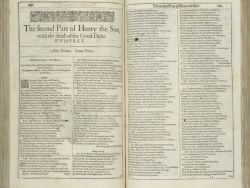
Miseducation and the Law in America, Part I “The first thing we do, let’s kill all the lawyers.” – Shakespeare, Henry VI, Part 2, Act 4, Scene 2 America is litigious. Many will roll our eyes at the thought of the creatures that make it that way. Jokes learned in childhood deprecate them in titanic […]
Read More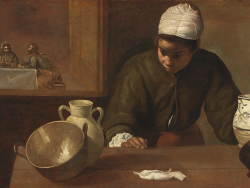
“Jupiter, I should like to understand what it is you are talking about. You say your master is sick. Hasn’t he told you what ails him?” —Edgar Allan Poe, “The Gold-Bug” Baptists and bootleggers don’t see eye to eye. Neither joins the other in their activities, yet they benefit from each other’s existence. A cynical […]
Read More
On his radio show of October 22nd, 2020, Rush Limbaugh admitted that he had been shocked by the overt Marxism of so many Obama supporters. He had always assumed such ideas were marginalized, but the 2016 election showed him that, like pop culture, academia is saturated with them. Many more conservatives need to experience Rush’s […]
Read More